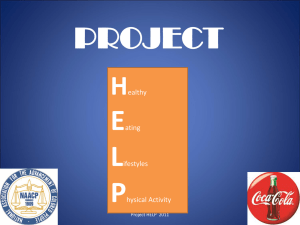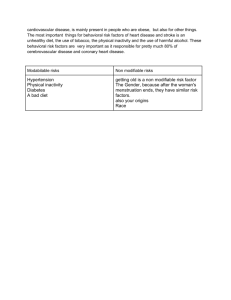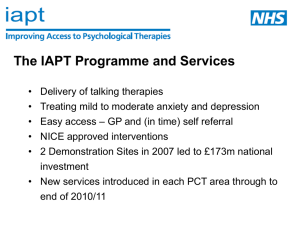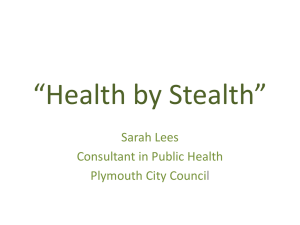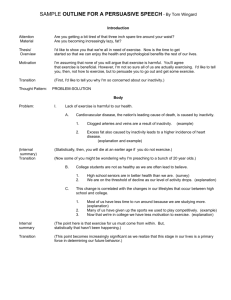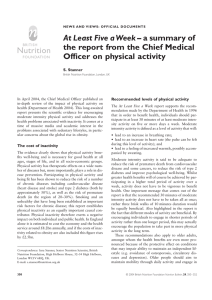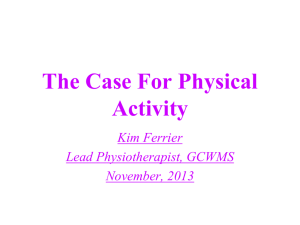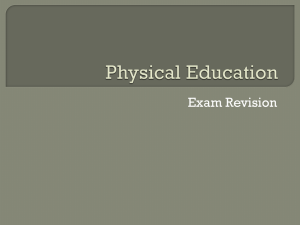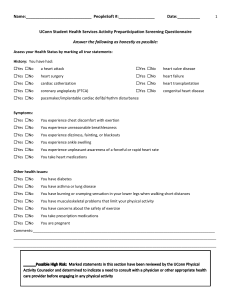Physical Activity Healthy Ireland commits to the development of a
advertisement
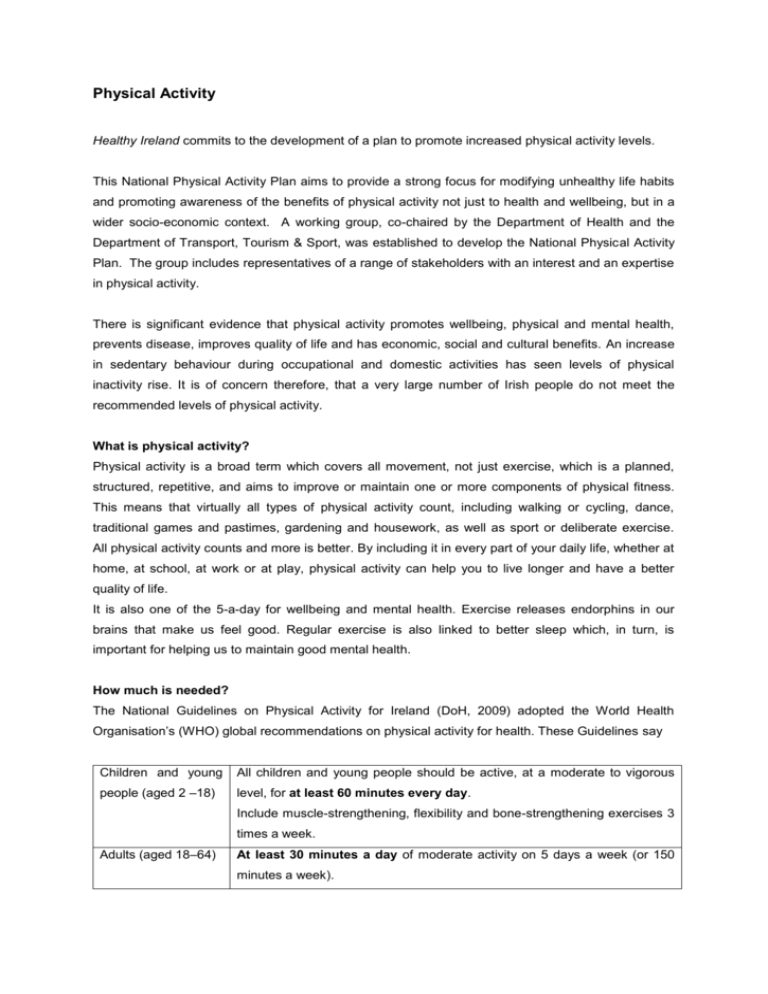
Physical Activity Healthy Ireland commits to the development of a plan to promote increased physical activity levels. This National Physical Activity Plan aims to provide a strong focus for modifying unhealthy life habits and promoting awareness of the benefits of physical activity not just to health and wellbeing, but in a wider socio-economic context. A working group, co-chaired by the Department of Health and the Department of Transport, Tourism & Sport, was established to develop the National Physical Activity Plan. The group includes representatives of a range of stakeholders with an interest and an expertise in physical activity. There is significant evidence that physical activity promotes wellbeing, physical and mental health, prevents disease, improves quality of life and has economic, social and cultural benefits. An increase in sedentary behaviour during occupational and domestic activities has seen levels of physical inactivity rise. It is of concern therefore, that a very large number of Irish people do not meet the recommended levels of physical activity. What is physical activity? Physical activity is a broad term which covers all movement, not just exercise, which is a planned, structured, repetitive, and aims to improve or maintain one or more components of physical fitness. This means that virtually all types of physical activity count, including walking or cycling, dance, traditional games and pastimes, gardening and housework, as well as sport or deliberate exercise. All physical activity counts and more is better. By including it in every part of your daily life, whether at home, at school, at work or at play, physical activity can help you to live longer and have a better quality of life. It is also one of the 5-a-day for wellbeing and mental health. Exercise releases endorphins in our brains that make us feel good. Regular exercise is also linked to better sleep which, in turn, is important for helping us to maintain good mental health. How much is needed? The National Guidelines on Physical Activity for Ireland (DoH, 2009) adopted the World Health Organisation’s (WHO) global recommendations on physical activity for health. These Guidelines say Children and young All children and young people should be active, at a moderate to vigorous people (aged 2 –18) level, for at least 60 minutes every day. Include muscle-strengthening, flexibility and bone-strengthening exercises 3 times a week. Adults (aged 18–64) At least 30 minutes a day of moderate activity on 5 days a week (or 150 minutes a week). Older people (aged At least 30 minutes a day of moderate intensity activity on five days a 65 +) week, or 150 minutes a week. Focus on aerobic activity, musclestrengthening and balance. Adults with disabilities Be as active as your ability allows. Aim to meet adult guidelines of at least 30 minutes of moderate-intensity activity on 5 days a week. Why is it important? Benefits of physical activity Regular physical activity, even of moderate intensity, such as walking, cycling, or doing sports – has significant benefits for health. Regular and adequate levels of physical activity improves muscular and cardiorespiratory fitness; improves bone and functional health; reduces the risk of hypertension, coronary heart disease, stroke, diabetes, breast and colon cancer and depression; reduces the risk of falls as well as hip or vertebral fractures; and is fundamental to energy balance and weight control. Being active helps also has a positive effect your overall wellbeing and mental health. Risks of physical inactivity Physical inactivity is the fourth leading risk factor for global mortality and is responsible for 6% of all deaths. Physical inactivity is on the rise in many countries, adding to the burden of non-communicable diseases (such as cardiovascular disease, cancer, respiratory disease or diabetes) and affecting general health worldwide. People who are insufficiently active have a 20% to 30% increased risk of death compared to people who engage in at least 30 minutes of moderate intensity physical activity on most days of the week. Physical inactivity is the main cause for approximately: - 21–25% of breast and colon cancers - 27% of diabetes - 30% of ischaemic heart disease. The National Physical Activity Plan will focus on operational issues to encourage greater participation in, and greater recognition of the importance of, physical activity. It will draw together and support organisations already involved in the promoting of physical activity. The Plan will be published later this year.
